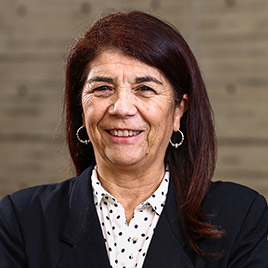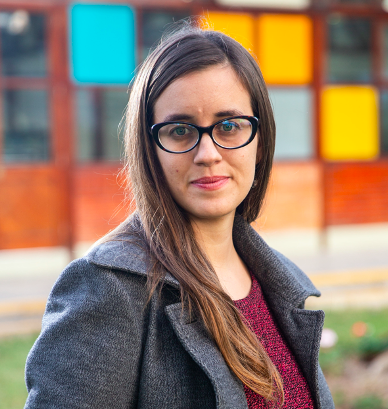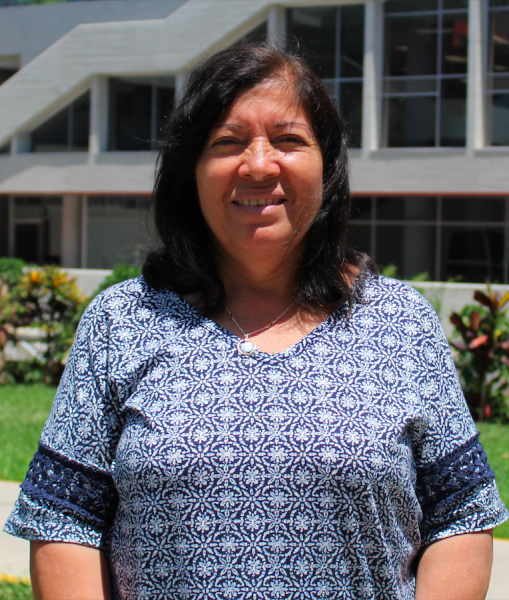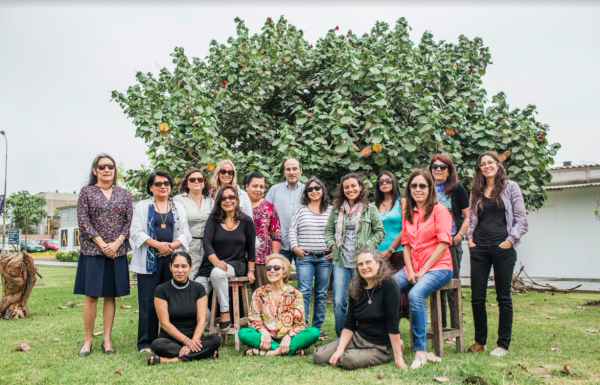Who’s who?
 Director
Director
Dra. Patricia Ruiz Bravo López
pruiz@pucp.edu.pe
Ph.D. in Social Sciences with a major in Development, Population and Environment from the Catholic University of Leuven, Belgium. Master’s and bachelor’s degrees in Sociology from the Pontifical Catholic University of Peru. Professor of Social Sciences and social researcher specializing in rural development, higher education, culture and gender. Consultant in development programs and project evaluation with specialization in gender and rural areas. She was head of the Academic Department of Social Sciences from 2005 to 2008 and Academic Director of Social Responsibility between 2009 and 2014. Since 2016, she is the director of the UNESCO Chair on Gender Equality in Higher Education Institutions based at the Pontifical Catholic University of Peru. She is currently coordinator of the Research Group on Gender Studies and Dean of the Faculty of Social Sciences at the same university. Her publications include “Gender Equality Policies in the Academic World” (2018), “Your Envy is not my Progress. Well-being from a cultural and gender perspective” (co-author with Lucía Bracco, 2017), “Gender and Education in Rural Schools” (2015).
Link to her CV: https://www.pucp.edu.pe/profesor/patricia-ruiz-bravo-lopez/

Executive Coordinator
Aranxa Pizarro
6262000 annex 3722
apizarroq@pucp.edu.pe

Administrative Assistant
Doris Mesones
6262000 annex 5370
Gender Studies Research Group
 The Gender Studies Research Group is an interdisciplinary group that includes teachers and students interested in gender and equality issues. Its goal is to develop a space for academic exchange that promotes research, teaching and participation in policy debates and advocacy for change in situations of inequality.
The Gender Studies Research Group is an interdisciplinary group that includes teachers and students interested in gender and equality issues. Its goal is to develop a space for academic exchange that promotes research, teaching and participation in policy debates and advocacy for change in situations of inequality.
o this end, it promotes the development of joint research and publications that will feed into teaching and research (theses) at the undergraduate and graduate levels. The aim is to contribute to the construction of academic knowledge with a gender perspective that contributes to both training and improving the quality of life of men and women.
Thematic areas:
- Gender Violence
- Gender and Interculturality
- Gender Equality in Higher Education Institutions
- Law and Gender
- Literature and Gender
- Social policies and development
For more information:
Universities of the Peruvian Network of Universities:
- Universidad Nacional de la Amazonía Peruana
- Universidad Nacional de Trujillo
- Universidad Nacional del Centro del Perú
- Universidad Nacional de San Cristóbal de Huamanga
- Universidad Nacional de San Antonio Abad del Cusco
International Universities:
- Universidad Libre de Berlín
- Universidad de Alicante
- Universidad Nacional de Costa Rica